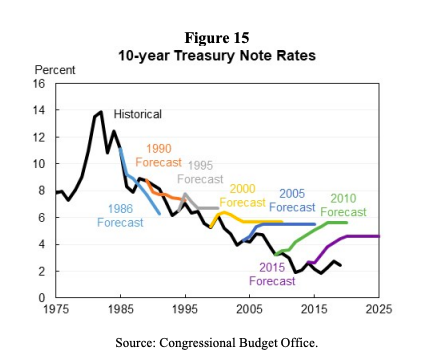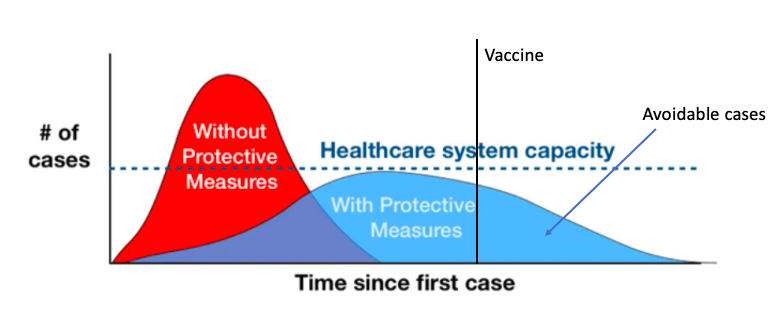
More on fiscal issues: once Biden is in office, expect Rs to wave around a lot of charts purporting to show a dangerous long-run debt trajectory. And to be fair, long-term CBO projections show a big rise in debt 1/
But what's driving those projections? Mainly it's rising interest costs — which in turn are driven largely by the assumption that rates will rise a lot 2/ 

But as Furman and Summers point out, CBO has consistently projected big rate increases that haven't happened 3/ piie.com/system/files/d… 

In other words, we're no longer living in a world in which the prospect of an aging population is the main driver of grim fiscal forecasts; instead, it's mainly a highly questionable assumption about financing costs 3/
Low interest rates also mean that the debt we run up over the next few years won't snowball (in fact, relative to GDP it will melt) 4/ nytimes.com/2019/01/09/opi…
So the long-run budget outlook probably isn't much of a problem, and it's certainly not a problem requiring urgent action. There are no economic obstacles to spending what we need to spend — only political hurdles 5/
• • •
Missing some Tweet in this thread? You can try to
force a refresh



